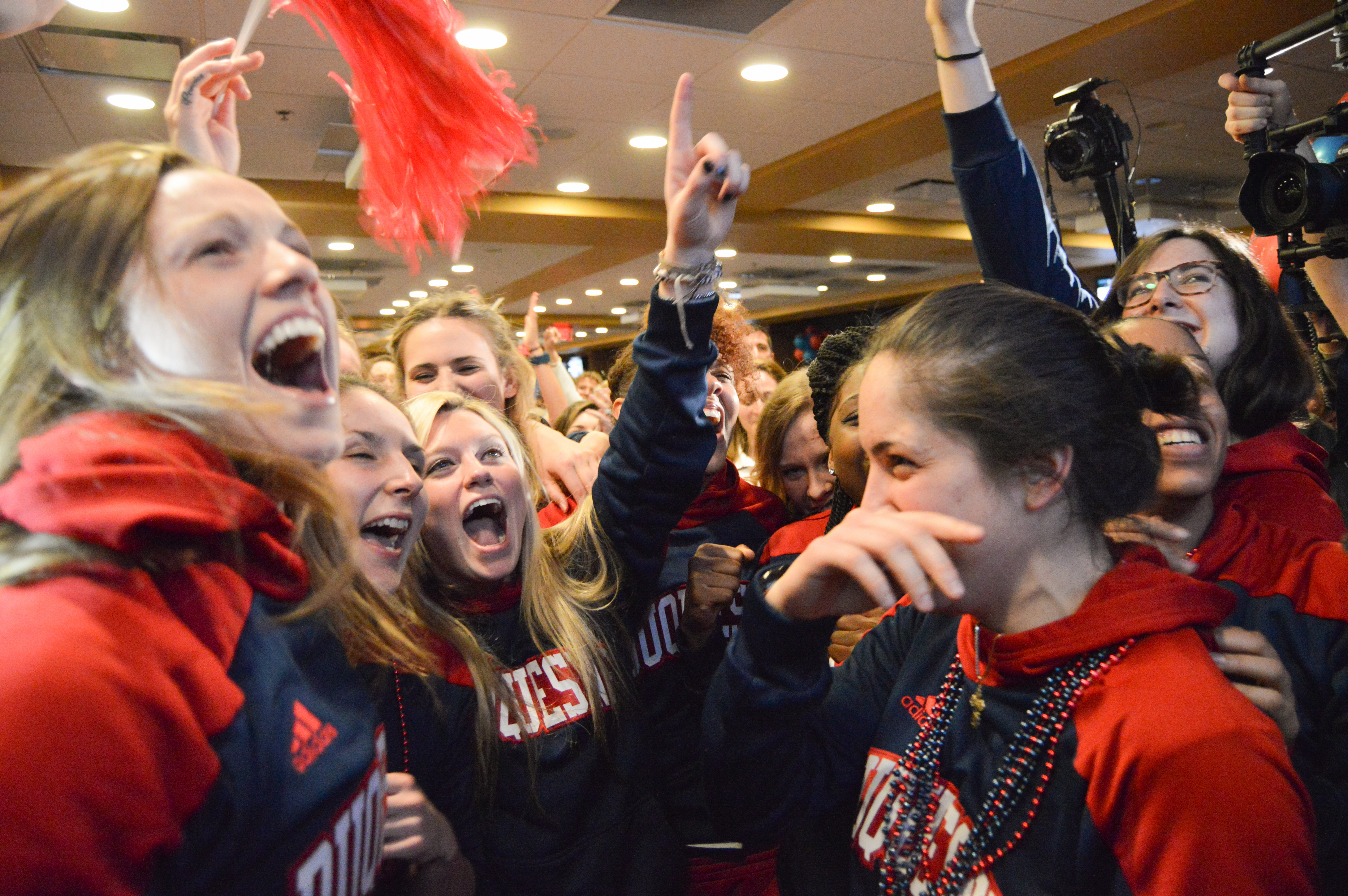By Kaye Burnet | The Duquesne Duke
Sister Rosemary Nyirumbe’s 4-foot-9-inch height means she can barely see over the podium in Duquesne’s Africa Room, but Honors College Director Kathleen Roberts says Nyirumbe’s small stature doesn’t seem to limit her courage.
“I’m proud to welcome a woman who once offered to fistfight Stephen Colbert,” Roberts said with a smile, referencing Nyirumbe’s joking threats to the television host during her appearance on the Colbert Report last May.
Nyirumbe, a former Duquesne student and Uganda native, was presented with an honorary Duquesne degree last Thursday for her work with former female child soldiers from Joseph Kony’s bloody Ugandan rebellion. There was also a screening of the documentary about her life, Sewing Hope.
As one of Time Magazine’s 100 Most Influential People in 2014, Nyirumbe has spoken around the world about her work in Uganda.
Nyirumbe runs the St. Monica Girl’s Tailoring School in Gulu, Uganda, a part of the country that she says has been ravaged by civil war for more than a decade. According to Nyirumbe, when she was first assigned to the school in 2001, attendance had dropped from 300 girls to just 30 because rebel kidnappers were targeting children in the area.
“We do not quite know why [the rebel fighters] chose to kidnap the children, but children – they are easy to make into soldiers, to train to kill and fight,” Nyirumbe said.
The Lord’s Resistance Army (LRA), led by Kony, is believed to be responsible for the kidnappings of more than 25,000 northern Ugandan children since it became active in 1986, although Nyirumbe said this number does not include many children who were killed by the rebels and whose bodies will never be found.
Kidnapped girls were trained as soldiers and treated as sex slaves. Some survivors told Nyirumbe the rebels forced them to kill their family members or friends. When these girls escape or are rescued, they have often been responsible for many deaths as child soldiers, while some bear children fathered by rebels.
“These girls are not able to come back to their homes,” Nyirumbe said.
This is why she turned the St. Monica School into a refuge and place of hope for the LRA’s former child soldiers. Her students, who range from age 15 to 30, are taught sewing skills, secretarial studies, catering and computer programming.
“We are sewing not only clothes, we are not only sewing purses, but we are trying to mend broken lives of people,” Nyirumbe said.
Duquesne freshman Eli Jones attended the event as part of an Honors College class. Jones thought honoring Nyirumbe was good reminder of the connection Duquesne has with Africa through the Spiritans, even if Nyirumbe’s order is not directly connected to the Spiritans.
“You occasionally hear about it, but it slips the forefront of your mind,” Jones said. “It’s a good reminder that Duquesne is more than just a University.”
The girls at St Monica’s create purses out of discarded pop-tabs, which they sell around the world. Nyirumbe thinks the pop-tabs serve both a practical and symbolic purpose.
“Pop tabs alone are just discarded,” Nyirumbe explained. “They are trash. It signifies my own women and children. These girls were also once discarded by society. And so if we are able to put the pop tabs together to make beautiful things, then I tell my girls, ‘We have to move from trash to treasure.’”
Nyirumbe joined the Sisters of the Sacred Heart when she was just 15 and has an undergraduate degree in developmental studies and ethics. In 2008, Nyirumbe enrolled in Duquesne’s Rome campus to earn a master’s degree.




